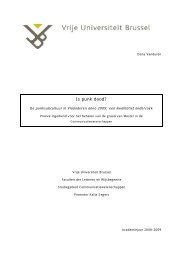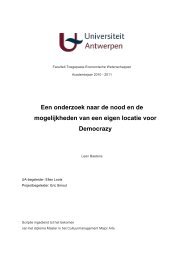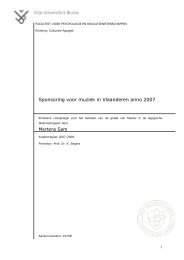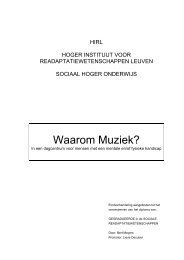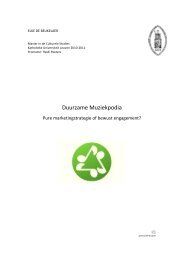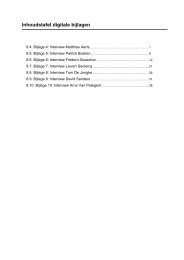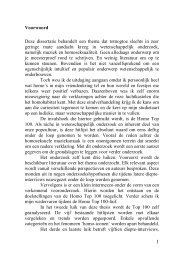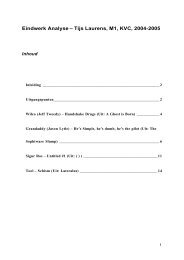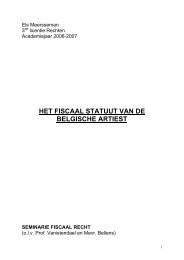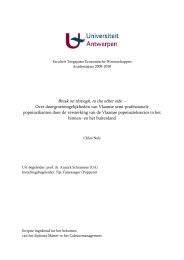Hip hop identity in a township reality. - Poppunt
Hip hop identity in a township reality. - Poppunt
Hip hop identity in a township reality. - Poppunt
Create successful ePaper yourself
Turn your PDF publications into a flip-book with our unique Google optimized e-Paper software.
ethnic boundaries, and it raises issues of legitimacy that participants need to<br />
reckon with <strong>in</strong> the course of their encounter.” (Rampton, 1998b: 291).<br />
To elucidate the differences between cross<strong>in</strong>g and code-switch<strong>in</strong>g, we will repeat the<br />
def<strong>in</strong>ition of code-switch<strong>in</strong>g which we used on page 71.<br />
“Code-switch<strong>in</strong>g is an <strong>in</strong>group phenomenon restricted to those who share the<br />
same expectations and rules of <strong>in</strong>terpretation for the use of two languages.<br />
Code-switch<strong>in</strong>g is thus usually seen as a device used to affirm participants’<br />
claims to membership and the solidarity of the group <strong>in</strong> contrast to<br />
outsiders.” (Woolard, cited <strong>in</strong> Rampton, 1998a: 270)<br />
The first th<strong>in</strong>g that attracts attention is the statement that the used language ‘does<br />
not belong’ to the speakers. If we put this <strong>in</strong> other words, it can be said that<br />
cross<strong>in</strong>g is an outgroup phenomenon, <strong>in</strong> contrast to normal code-switch<strong>in</strong>g which is<br />
an <strong>in</strong>group phenomenon. A more profound dist<strong>in</strong>ction between both notions is<br />
necessary. Through cross<strong>in</strong>g, people make use of another group’s language or code,<br />
they figuratively cross a l<strong>in</strong>guistic and a group border. They move across social and<br />
ethnic boundaries by the way they speak. This idea will be very useful for our<br />
research, where the <strong>in</strong>terviewees make frequent use of this phenomenon. It will be<br />
properly l<strong>in</strong>ked to our outcomes further on.<br />
The question is: why would people use a language that does not belong to them?<br />
The answer po<strong>in</strong>ts <strong>in</strong> various directions. Identity will be the central issue here.<br />
Speakers make use of cross<strong>in</strong>g to create or redef<strong>in</strong>e an (new) <strong>identity</strong> . S<strong>in</strong>ce the<br />
speaker normally does not belong to the group he wishes to belong to, he uses<br />
language as an <strong>in</strong>strument to make the <strong>identity</strong> of that (social or ethnic) group his<br />
own for a certa<strong>in</strong> period of time. The participants need to be conv<strong>in</strong>ced of the role<br />
that the speaker is <strong>in</strong> at that moment. In order to do so, the speaker uses a<br />
particular style of speech that normally does not belong to him, but is now<br />
necessary to emphasise his <strong>identity</strong> switch and to make it look real for the outside.<br />
The codes that are used <strong>in</strong> <strong>in</strong>group code-switch<strong>in</strong>g are/can be used <strong>in</strong> normal daily<br />
life. Because of that, they have less chance to be marked; sometimes the switch is<br />
made un<strong>in</strong>tentionally or unconsciously. Cross<strong>in</strong>g does not happen that way;<br />
because of the context <strong>in</strong> which cross<strong>in</strong>g occurs, the codes cannot be used <strong>in</strong><br />
unexceptional everyday life. Cross<strong>in</strong>g is a marked form and is done <strong>in</strong>tentionally<br />
and fully aware. That is why it has much more chance to be flagged for <strong>in</strong>stance by<br />
pauses <strong>in</strong> the utterance, hesitations, repetition, and metal<strong>in</strong>gual commentary<br />
(Roma<strong>in</strong>e, quoted <strong>in</strong> Rampton, 1998a: 272).



